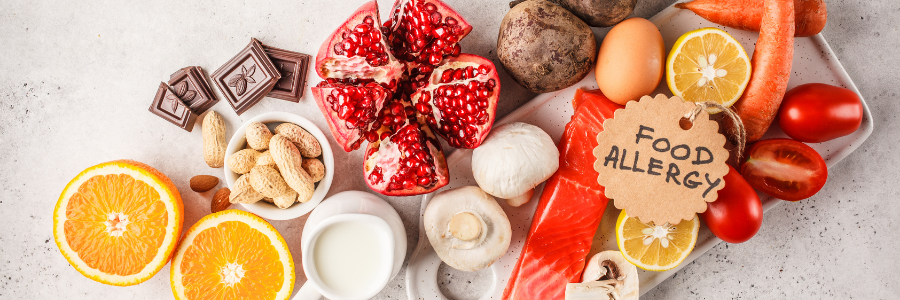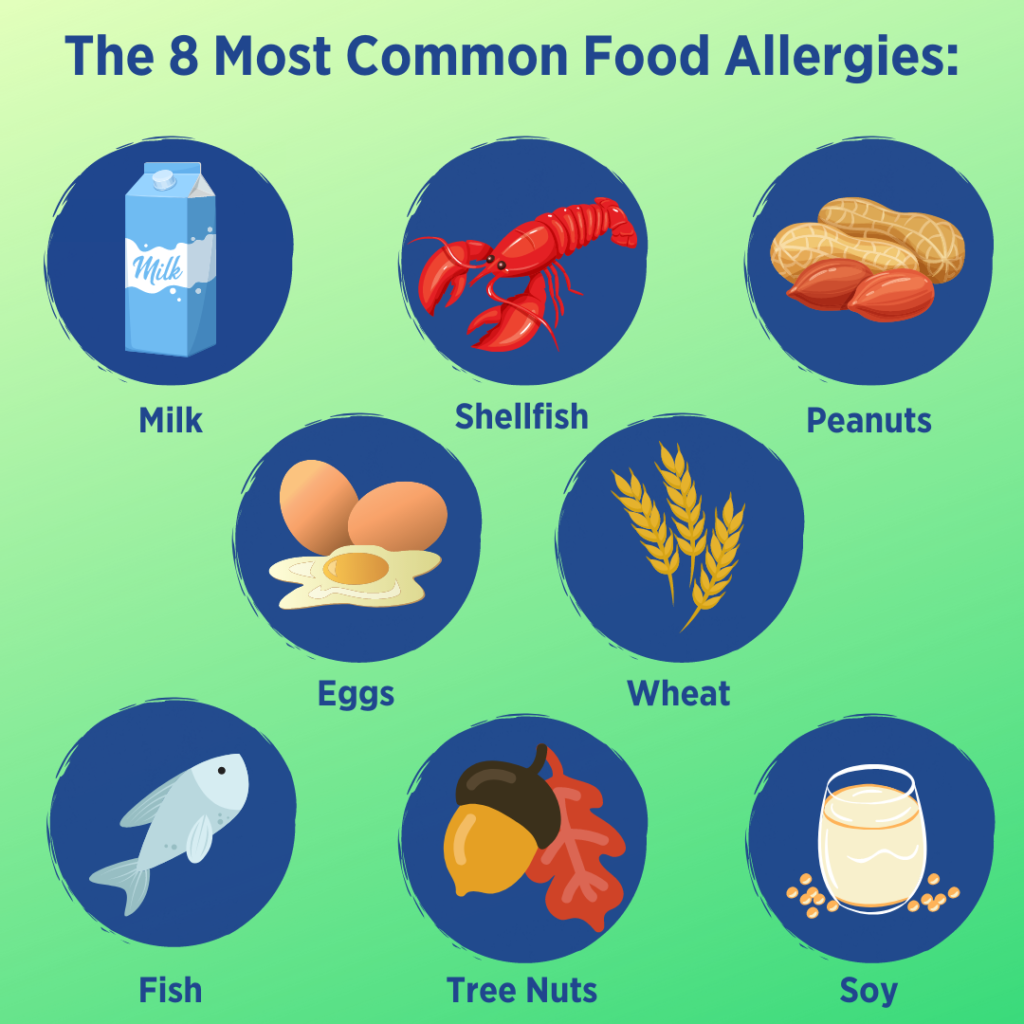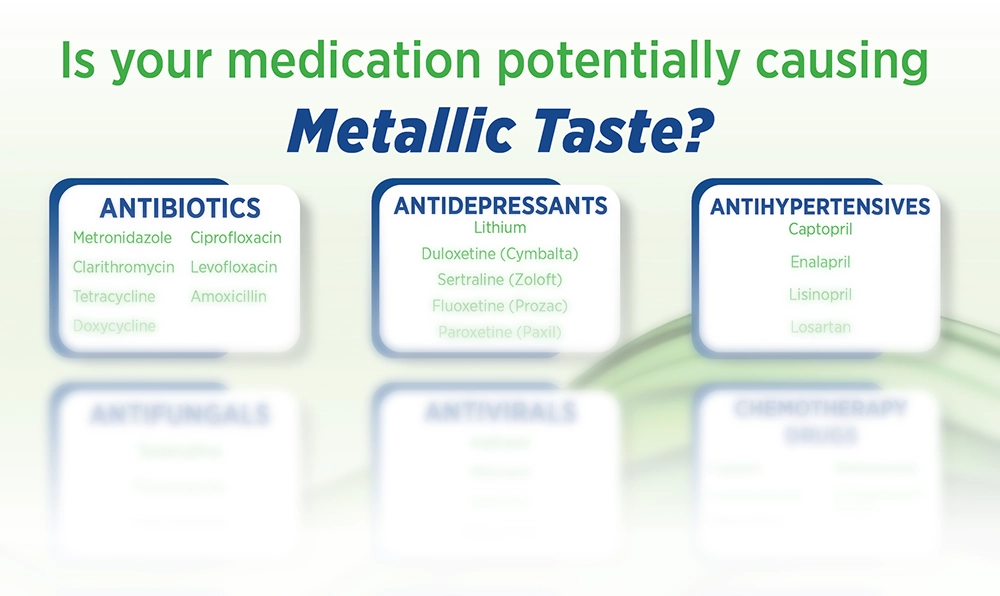

A food allergy is an immune system reaction that occurs shortly after eating certain foods. Food allergies can occur in response to any food and some people may be allergic to more than one food. Often times, it takes multiple tries to figure out what foods you are allergic to.
Food allergies may start as a child or as an adult. Most children with food allergies outgrow their allergy by the time they reach adulthood. It is also possible to develop food allergies as an adult. Developing a new food allergy is very common with women who are pregnant. Anxiety, stress, or trauma also can cause new food allergies. These factors can weaken the immune system, and make a person more prone to developing food allergies. Allergies to food can cause the body to trigger its defenses, releasing antibodies into the bloodstream to combat the intruders.

The 8 most common food allergies are:
Reactions from food allergies can vary from mild to severe. Food allergy symptoms usually develop within a few minutes to a few hours of eating. The most common food allergy symptoms include:
Metallic taste has been identified as a symptom of some food allergies. If you develop metallic taste consistently after eating certain foods, this may be an indication of a food allergy. Tree nuts and shellfish are the most common food allergies that cause metallic taste.
If you are experiencing metallic taste after eating, this may be a sign of a larger issue. Anaphylaxis, a more severe reaction to food, happens when the body systematically tries to ward off the allergens, and closes off the airways and throat, often causing blood pressure to dramatically decrease and the heart rate to increase. This kind of allergic reaction is usually sudden and needs to be taken care of by professionals immediately.
There are no known cures for food allergies. The best way to avoid food allergies is to stay away from any foods that may cause a reaction. Carrying an injectable solution (EpiPen), as prescribed by doctors, is another way to ensure your safety if you ever come across the allergen accidentally.
In addition to food allergies causing metallic taste, specific allergies, including hay fever, are also known to cause metallic taste. Hay fever is an allergy to pollen or dust. Hay fever can leave a metallic taste in your mouth due to inflamed nasal passages that disrupt your ability to taste. Other common symptoms of hay fever include runny nose, fatigue, coughing, and itchy eyes. Hay fever is typically worse between March and September, when the pollen count is higher.
If you are experiencing metallic taste as a result of food or other allergens, MetaQil is here to help! MetaQil is the only OTC product designed to alleviate metallic taste caused by allergies. MetaQil gently cools the mouth and provides instant, long-lasting relief from metallic taste symptoms. It has a mild flavor and does not “sting” the mouth like an every-day mouthwash. Regular use of MetaQil can help patients return to healthy eating and adequate nutrient intake.
For best results, use approximately 5 ml (one teaspoon) of MetaQil®, rinse for 30 seconds, and spit out. MetaQil can be used on an as-needed basis. Use alone or after each time you brush your teeth
Important: If you are pregnant or breastfeeding, please consult your physician before using MetaQil. Do not use MetaQil if you are taking any medications that are contraindicated with the product. Please consult with your physician if you have any concerns regarding the use of this product. Keep out of reach of children.
For more information about MetaQil, click here.
